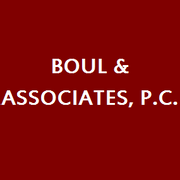- DON'T DISCLOSE ALL YOUR PROPERTY. This is the worst thing you can do. The bankruptcy trustee will likely find out about it, and sell the property you tried to hide. The court could then deny you a discharge, and you could be criminally prosecuted for bankruptcy fraud. How's that for a bad idea! If you have property that is at risk of being lost in bankruptcy, a competent bankruptcy lawyer can guide you through legally acceptable procedures to minimize, and in many instances eliminate, any loss of your property.
- PUT MONEY (OR OTHER PROPERTY) INTO SOMEONE ELSE'S NAME. That is the first thing many people think of, and the second worst thing you could do. The trustee could take the money or property from the person you give it to, and then the court could deny you a discharge of your debts.
- ASSUME BANKRUPTCY RUINS YOUR CREDIT. If you cannot satisfy your creditors, your credit is already bad, or is about to become bad. The damage to your credit results from having debts you cannot pay. Bankruptcy doesn't make your credit worse; it puts a stop to that unending nightmare you are experiencing. It gives you a fresh start and an opportunity to rebuild your credit. Bankruptcy is the remedy for such credit problems; not the cause.
- THINK BANKRUPTCY IS IMMORAL. Yes, you have a moral obligation to pay your debts, if you can. But, you have a higher duty to support yourself and any dependents you may have. So, if you need to file bankruptcy to be able to support yourself and your dependents, filing bankruptcy is the right thing to do.
- PAY OFF YOUR VEHICLE BEFORE FILING. Wrong! The lien on your vehicle helps protect it from being taken by the bankruptcy trustee. Paying it off could, in some circumstances, cause you to lose it.
- LIQUIDATE YOUR RETIREMENT ACCOUNT. Please do not do that. Your retirement account is exempt. That means your creditors and the bankruptcy trustee cannot take it from you. You will need it when you retire. Don't waste it by cashing it in and spending it now.
- PAY YOUR FAVORITE CREDITORS BEFORE YOU FILE. Big mistake!. In many instances, the bankruptcy trustee could take the money back and re-distribute it among all your creditors. I'm guessing that would not make you happy. Pay favored creditors after you file bankruptcy, not before.
- ASSUME YOU CAN'T FILE FOR BANKRUPTCY AGAIN FOR SEVEN YEARS. Often said, but not true. There may be waiting periods following chapter 7 and chapter 13 bankruptcies, depending on what you plan to do next. None of them require you to wait seven years. In some situations, there is no waiting period. Your lawyer can advise you on your options.
- ATTEMPT A HOPELESS DEBT CONSOLIDATION. Debt consolidations often do not work, and money spent on a futile attempt at debt consolidation is wasted. Failed efforts at debt consolidation are often followed by a bankruptcy filing, which should have occurred in the first place.
- WAIT UNTIL YOU ARE FLAT BROKE BEFORE CALLING A BANRUPTCY ATTORNEY. This wastes money by attempting to pay debts you cannot afford to pay, delays your getting a fresh start and makes it harder to pay the legal expenses of your bankruptcy when you finally get around to it.
About the Business
BUSINESS
Law Firm
Boul & Associates, P.C.
(56 reviews)
1 E Broadway Suite B, Columbia, MO 65203
Have a question? Ask the experts!
Send your question

